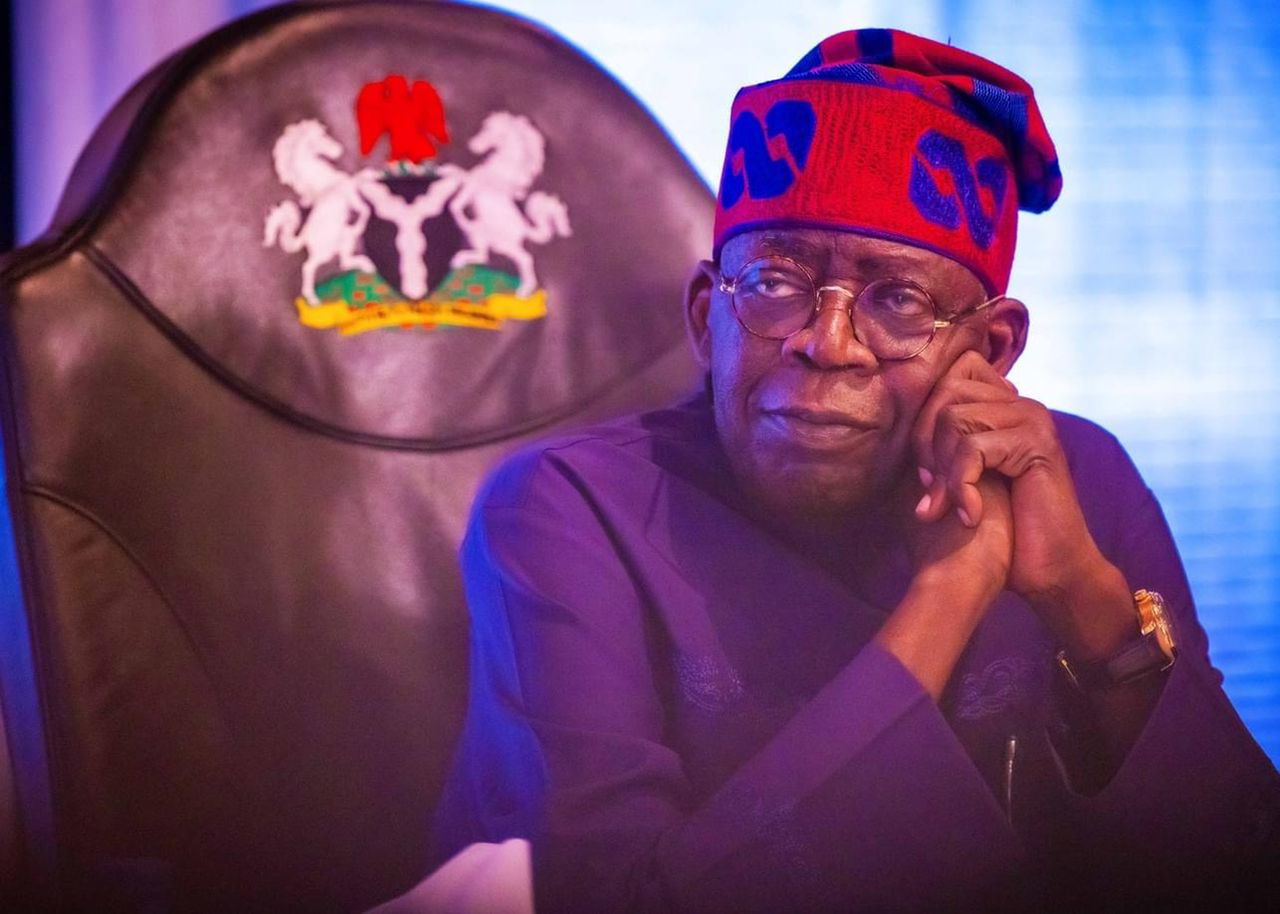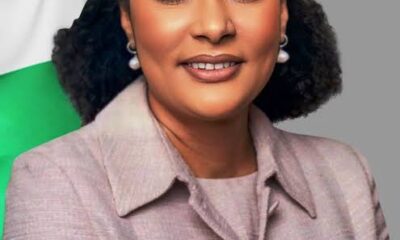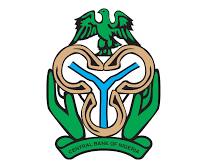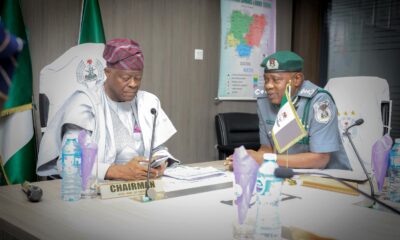Business Focus
Groups Slams FG Over FX, Customs Duty Rate Fixing

BY GBOGBOWA GBOWA
The number of professional groups that have publicly disagreed with the ongoing fixing of foreign exchange rate (FX) in addition to customs duty rate adjustment multiplied since the weekend, with a consensus that the concerned ministries, departments and agencies (MDAs) are not acting in the interest of the generality of Nigerians.
According to the League of Maritime Editors (LOME) and the Association of Nigeria Licensed Customs Agents (ANLCA), the arbitrary fixing regime is adversely impacting the nation’s micro and macroeconomic system, and therewith the erosion of citizens buying power; plus the concomitant hardship unleashed on vulnerable lower class masses.
Also speaking on the issue, the Sea Empowerment Research Center in a statement accused the Federal Ministry of Finance and the Central Bank of Nigeria (CBN) and others involved in national planning of pursuing an unrealistic and counterproductive fiscal and monetary policy system.
Head of the Centre, Fwdr. Dr Eugene Nweke Rff Fnis Ksm, says that rather than make the economic policies people orientated, the political leaders and managers caters mainly for the elites and its monopolistic tendencies.
Dr Nweke argues that this tendency has also promoted project loans interest fraud, banks insider dealing, round tripping including the issues of questionable waivers, debt cancellations and tax holidays, among others.
The Centre in its report titled ‘RE: CBN CUSTOMS DUTY EXCHANGE RATE RISES TO N1,356/$ – ISSUES ON THE MARBLE’, Nweke said that while at the global scene, efforts are being directed at eliminating factors that impedes trade volume, in Nigeria, the economic managers manufacture and throws barriers on the path of trade; using the customs duty exchange rate adjustments as example.
He said, “The Sea Empowerment Research Center wish to note that at the recent World Economic Forum (WEF), one of the global concerns raised at the forum revolves around the drop in the global trade volumes as witnessed in 2022/2023 period to which the WTO Director General, Dr Ngozi Okonja Iweala urged trading countries to stimulate trade volumes.
“This is via trade policy rebates and waivers, to eradicate delays associated with dwell time, increase trade facilitation windows, removal of trade barriers, promote bilateral trade agreements, etc; never through systemic and incessant duty exchange rate increments as an alternative window.”
The Centre tasked the Minister of Finance, Budget and Planning and the Coordinating Minister, Wale Edun to show seriousness in governance by carrying out impact analysis before introducing policies of rate increment in view of their sensitive impact on trade, import, export, manufacturing and consumption; lamenting that the wrong policies are hurting businesses with many industries closing down.
“In the Centre’s opinion, dishing out fiscal and monetary policies without recourse to weighing it’s economic implications falls short of the renewed hope mantra. The Centre believes that one of the core objective of the renewed hope mantra is to move away from the old order to a more requisite new order. As such, the Centre equally believes that the ministry has a duty to know how many businesses are closing shops per month; how many are downsizing weekly, monthly and quarterly; and the population of Nigerians that are out of job.”
Nweke said that the questionable policies have worsen the labour market while inflation is on galloping trend rubbishing the purchasing power of ordinary Nigerians citizenry; and consequently also increasing the poverty and economic hardship, plus its contributory effects on insecurity.
“Shying away from undertaking a deliberate review on these critical concerns, to say the least is tantamount to a mere display of poor administrative leadership. There has been an ongoing argument at different quarters whether the arbitrary intervention of the CBN on Duty Exchange Rate Increment is or is not interfering with the function of market forces.
“It was rather reasoned that in many instances, incessant revenue escalating methodology is an arbitrary deliberate act that seeks to guarantee government drive for surplus revenue. Therefore, there is need for the fiscal policy makers to do a total system reevaluation; every aspects of our monetary policy must be devoid of preferential treatments so that market forces determination will not be a theory but practicality.”

Commenting on the foreign exchange rate fixing, Nweke identified the internal dynamics of corruption which he says also weakens the exchange rate.
“The effects of increasing foreign exchange rate in relation to servicing international loans, and other issues raised here, has to be looked into, because, it is not a mere factor. The problem of currency devaluation or the poor performance of the foreign exchange transactions is not truly caused by international trading or trades alone.
“The cozy relationship and activities of some Currency Dealers (Bureau De Change) and the regulatory bodies seem to be taking an unwholesome shape. Also, while its noteworthy that the activities of money launderers and imports racketeers and by extension drug and arms trafficking( smugglers) has received prompt curtailment, notwithstanding, it must be stated that their activities has gone international and assumed terrorism financing.
“Policy makers have a duty to understudy and discourage the activities of insider trading within the banks at all levels, with special focus on hacking via internet banking. Fiscal policies must be deliberate at encouraging our most enterprising citizens to engage in more legitimate and beneficial ventures. For instance, international traders should be encouraged rather than chasing them and their capital and associated job creations out of the country via over taxation.
‘Fiscal policies must have the capacity to monitor and checkmate the activities of investors becoming monopolists, enjoying cozy relationships with insider traders…thus promoting oligarchy, with the ability to borrow huge sums of money for acquisitions, then turns around to manipulate the accounting principles, play legal takeover games or avoid payments of accurate taxes. In reality such investors are not really contributing to the nation’s wealth.
“Against the backdrop of the overwhelming consequences of these increments, we wish to sign off by requesting the Hon. Coordinating Minister to direct the CBN to desist from the act of incessant increment of exchange rate for customs duty assessment forth with, for the interest of the over stretched and suffering Nigerians populace, in the spirit of the renewed hope mantra.”
The Centre according to Nweke also charged the relevant authorities to impose a 10% surplus tax on foreign investments in the nation’s logistics value chain, and a zero percent surplus tax on indigenous operators.
“In specific terms, tax exemptions on logistics services equipments acquisition and importation, the policies implementation should be redefined. Under a deliberate national discriminatory policy, tax law should provide for a dividends free tax when paid by Nigerians to Nigeria corporations and an imposition of 10% on dividends when paid by foreign investments or foreign investors.”
Also speaking on the issue of arbitrary customs duty rate fixing, the renowned cerebral freight forward, Chidi Anthony Opara enjoin the leadership of the leading freight forwarding associations to desist from engaging in loose representations and mere platitude during engagements with policy makers and drivers, into critical engagement that also seeks to influence more friendly policy posture and positive compromise.
He explained that since the customs service is merely a policy implementing organ and not policy formulator, leaders of the associations should target the relevant organs to engage in the quest to ameliorating government’s appetite for revenue optimization over and above industrialization and trade facilitation.
He said, “In the light of the above, the subsector leaders should jettison their love for empty high sounding names and unnecessary publicity hugging mentality and focus on the following:
“They should broaden their engagement policy to include other relevant government agencies, like the Central Bank of Nigeria (CBN). They should be mindful of the fact that the Customs service is a policy implementing, not a policy formulating agency.
“They should as a matter of urgency, approach the Central Bank of Nigeria(CBN), from where the policy under reference emanated with the aim of securing a downward review or even a return to status quo. They should synergize with the organized trading sector to forge a united front”, adding:
“Before approaching the CBN, they should be armed with verifiable data on the consequences of the referenced policy on the economy of the country, especially at the micro level.”




































